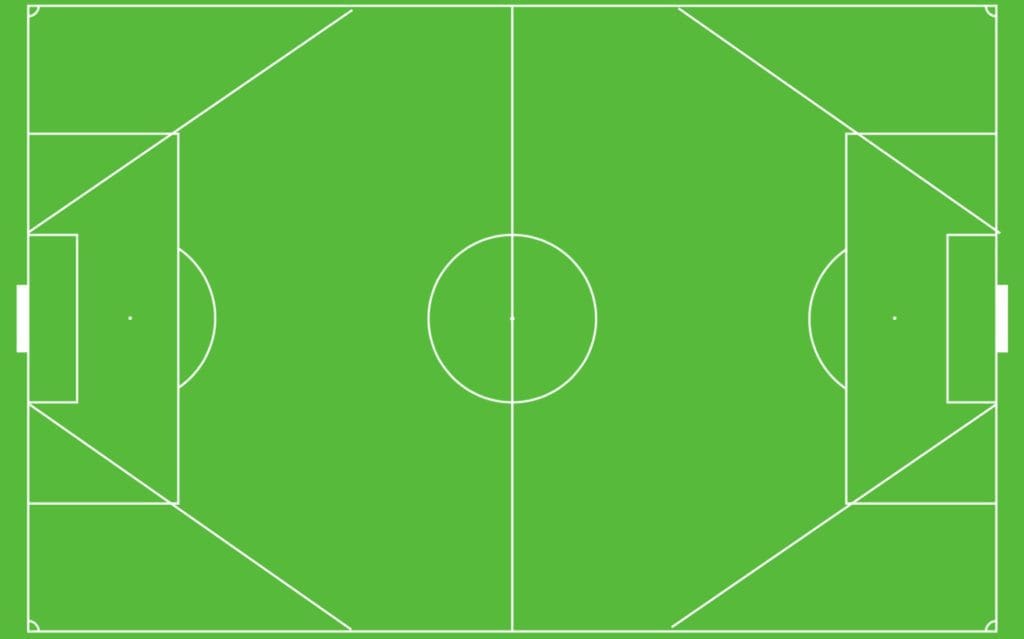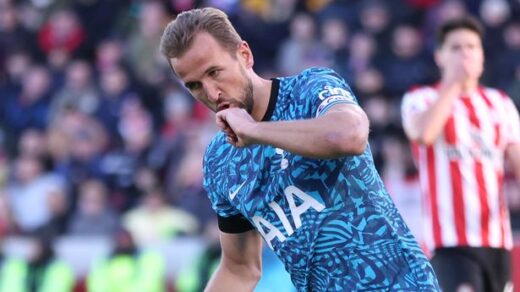Thomas Tuchel is widely regarded as one of the most innovative and exciting coaches in the professional game, joining a growing number of German coaches who share his approach to coaching. Despite his relatively young age of 49, Tuchel has already held coaching positions at top European clubs such as Paris Saint Germain and Chelsea.
At Bayern Munich, Tuchel currently serves as the head coach, but his coaching journey started at Mainz, where he swiftly progressed from coaching youth teams to taking charge of the senior team by the age of 35. Tuchel has also gained extensive experience in youth coaching at various clubs including Stuttgart, Augsburg, and Borussia Dortmund, where his tactical prowess and innovative training methods played a crucial role in his coaching success.
Differential Training
(above) Thomas Tuchel observing his players during the training session
Thomas Tuchel’s training methods are inspired by the work of Wolfgang Schollhorn in the field of physical development. Tuchel’s training approach, referred to as Differential Training, focuses on designing practices that push players to think outside the box and discover novel solutions to problems. Rather than simplifying the training, Tuchel aims to make it more complex, pushing players to develop as many solutions as possible. Tuchel believes that having the team practice together is essential for success on the field, as it allows players to interact with each other during games. He is convinced that problem-solving is the key to player development, and he discourages making things easy for young players, as he believes this can hinder their growth.
According to his methodology, talented players are good at solving problems, and he would advise his coaching staffs to make things difficult as possible for their talented players so that they can learn to overcome obstacles. Tuchel emphasises the importance of constantly training in different scenarios and situations, rather than repeating the same pattern again and again. He trains his players with countless repetitions and doesn’t rely on the same set play strategies for all games. His focus on keeping the players’ minds actively busy during training sessions to bring the best overall performance out of them is a dynamic element that holds everything together.
During his time as the head coach of Mainz, Tuchel implemented a set of rules and standards aimed at prioritising fairness, respect, and intensity in team’s training sessions. Tuchel wanted these principles to be encapsulated in the team’s core rule, “We train as we play,” which was prominently displayed on the wall of their training facility. The feedback Tuchel received from fellow coaches and observers regarding these standards was overwhelmingly positive, and he emphasised the importance of setting high expectations and holding oneself accountable. One example of this was Mainz’s three-player breakfast rotation, inspired by some of the world’s most successful sports organisations. He understands the value of humility, knowing that even the greatest athletes are willing to perform mundane tasks and take on any role necessary to support their team.
Repetition, Without Repetition
Tuchel’s training methods are unique in that he emphasises repetition without repetition. He believes that constantly repeating the same drills and correcting mistakes can lead to players becoming too self-critical and less likely to take risks, which ultimately stifles creativity. Tuchel argues that simply giving players the answers to problems doesn’t encourage creativity, and he believes that players need to discover their own solutions.
He also recognises that players have different physical and technical mechanics, which means that a “one-size-fits-all” coaching manual for techniques is ineffective. Instead, Tuchel tailors his training methods to each individual player, encouraging them to find their own unique ways of executing the same skills. This approach fosters creativity and helps players reach their full potential. Tuchel’s unconventional coaching approach involves pushing players out of their comfort zones to help them enhance their performance and become more creative. Tuchel firmly believes that it is his responsibility as a coach to constantly challenge his players and bring out their best. While some may view his methods as unconventional, Tuchel believes that this struggle is necessary for players to improve. Initially, some players may find his techniques strange, but they soon realise their benefits as their skills and abilities begin to improve.
Innovative Approach
Variation is a key element of Tuchel’s training sessions. Recognising that every player learns differently and at their own pace, Tuchel avoids a “standardised” approach to drills. He understands that not all players need the same type of passing drills, for example. To keep the players engaged and focused, Tuchel incorporates a wide range of activities and constantly changes the flow of the sessions. Even during long training sessions that last up to 2.5 hours, the players remain fully engaged and never feel bored. Tuchel’s approach is similar to that of Paco Seirul-lo, a proponent of Differential Training and a significant influence on the famed La Masia academy at Barcelona. Seirul-lo advocates for no more than three repetitions of each exercise, ensuring that the game and the training remain fresh and stimulating.
Thomas Tuchel has got his Chelsea players training with mini balls to help improve their control and the accuracy of their tackles.
He’s also been known to make defenders hold tennis balls to stop shirt pulling and shape pitches into diamonds to encourage diagonal runs. pic.twitter.com/qOnNi9UrSv
— ESPN FC (@ESPNFC) January 29, 2021
His training methods are characterised by innovative techniques that challenge players and force them to think outside the box. For instance, he incorporates unusual tools such as tennis balls during defending drills to prevent the grappling of opponents. He also trains players on slippery surfaces to enhance their balance and control. Tuchel’s training sessions often take place on extremely narrow or wide pitches to force players to adapt to different game scenarios. He also introduces constraints in his coaching approach, such as allowing players to only control the ball with their knees, to challenge and improve their technical abilities. Tuchel’s approach, known as Constraints-Based Coaching, involves manipulating the task, player, or environment to make training sessions more difficult and encourage creativity and problem-solving.
Tactical Focus
Tuchel’s training principles implies different training pitch structures which indirectly force players to play in unknown circumstances, thus developing self-organisation system. Tuchel has broke away from the conventional thinking in football, breaking player’s mental models, making them more flexible in their behaviour and patterns by playing diagonal, instead of long line or flat passes. He doesn’t want to be a coach who criticises and blows the whistle at every mistake his team made, rather, he aims to support them through observation and guidance, allowing him to be an anchor, rather than nitpicking every little detail. It just no longer made sense for Tuchel to copy the tactics of previous game. His tactical principles are against automatism and repeating same movements and patterns for many times – instead of that, it’s characterised by many variations between single repetitions.
The small details have to be clear, Tuchel believes that it is essential for players to have a clear understanding of the small nuances that can make a significant difference in a game, such as which foot to use when receiving the ball, or how to move a teammate into an open position. By mastering these principles, players are better equipped to navigate complex game situations, and Tuchel encourages them to be creative within the framework of the team’s game model. Despite the focus on specific principles, he allows for maximum creative freedom for each player to express themselves on the field.

Tuchel and Pep are more different than many anticipate, despite both coaches using the same “Positional Play” philosophy in their game model. However, their training methods differ. As Martí Perarnau, in his book “Pep Confidential”, smartly highlights the way Pep likes to train his players –
“There’s not a huge difference between what we do and other training methods in terms of intensity and volume of work. I’d say we might be doing 10 or 15 minutes less out on the pitch, at the most, particularly if you count the injury prevention work we do in the gym. We value quality over quantity and prefer to do more high-quality exercises together than spend time doing long stints of physical training. They’ve noticed not just that, but also the high percentage of ball work we do. In fact we don’t do anything without the ball, just some warm ups and warm downs, or individual work with a player if he needs something specific.” — Pep Guardiola
Conclusion
Individuals who become exceptional may possess unique qualities within them. However, what truly matters is consistently challenging them, and it is the coach’s responsibility to inspire them to eagerly overcome obstacles.
Over time, the players began to develop a greater trust in Thomas Tuchel as they realised the effectiveness of his differential training methods and the value of practicing on narrow pitches. The training sessions, with limited space and time, were intentionally designed to be more challenging than actual games, where players have more space to make decisions. As a result, the players found the games easier to navigate, as they were better prepared to deal with sudden increases in space on the pitch.
While Tuchel does not consider his training methodology to be a philosophy, it has clearly worked for him, as he has achieved great success in club football.



